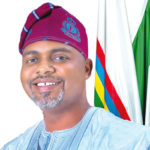SIMEON Olaogun is a senior lecturer in the Department of Linguistics and Languages at Adekunle Ajasin University, Akungba-Akoko (AAUA), Ondo State. He graduated from the same department years ago and most of his lecturers during his undergraduate days saw him as one of the best brains that have ever emerged from the department.
Perhaps he wouldn’t have graduated in flying colours let alone retained to lecture at the department if not for his strong foundation in his mother tongue, having been taught at the foundational level in his mother tongues.
“When I was in 100 Level, I was taught phonetics of English and I struggled to understand some of the terminologies. But it was when I got to 200 Level and taught the phonology of Yoruba that I got to understand some of the things my lecturers taught us then in English at the 100 level. In fact, I got a better understanding of everything when I was taught in Yoruba than when I was taught the same course in English. This explains why students will perform better when they are being taught any subject or course in their indigenous language,” he explained to Sunday Tribune.
Speaking further, he referred to efforts by educationists and researchers to underscore the need for a strong foundation in mother tongues.
“There was a research carried out in (University of) Ife in 1989. They called it Ife Six-year project and it was led by Professor Babs Fafunwa. For the project, some sets of students from primary1-6 were taught all subjects in their mother tongue, while another set of students were taught the same subjects in English Language. And at the end of the six years, in the same environment where all other variables remain constant including the period for each subject, the same examination was given to the two sets of students -the control and the experimental group. Eventually, those that were taught in their mother tongue, being Yoruba, performed veritably better than those taught in English. This again explains the role the mother tongue plays in the educational development of a child,” he explained.
To further lend credence to Olaogun’s assertion, a research carried out in African and non-African context by the United Kingdom’s International Organization for Cultural and Educational Opportunities, revealed that “children learn best in a language they understand and speak fluently because learning in such a language environment carries significant cognitive, socio-emotional and cultural benefits.”
According to the linguist, “Language plays a vital role in the cultural development of an individual and the society. It is a vehicle for the expression of cultural values and no one can develop culturally without language. Language and culture are inseparable. When a language dies, the culture automatically dies becausecultural values and heritages are handed over from one generation to the other through the use of indigenous language.”
Being a multilingual nation with over 250 major languages according to the British Council, lack of vivid description of a national language policy is limiting the educational development of the country.
‘It is regrettable that in Nigeria, we don’t have an effective national language policy unlike countries like China, Though there was a time the government said the language of instruction in Nigeria should be the mother tongue, while English should be taught as just a subject at the primary school level. But it was not implemented in our public primary schools. In fact, the three major languages in Nigeria: Yoruba, Hausa and Igbo have been made optional for students at the secondary school level. And that’s why some of us at the academia weep for this nation,” Olaogun lamented.
He cited negative language attitude of the parent and the government as one of the factors limiting the proficiency of Nigerian students in their indigenous languages. ‘Charity begins at home because the home is the first contact that a child has. But parents of nowadays, both the educated and the uneducated believe that it is barbaric to speak their local language or dialect to their children at home. And that’s why from the infant stage of the children, the parents tend to speak English to them. Sad enough, the kind of English they speak to them is very bad. Consequently, the students these days feel very ashamed to speak their motherlanguage.
“On the government factor, it is worthy of note that there is no country in the world who has ever developed using a foreign language. China is a very good example. They use their indigenous language, Chinese and through this, they have developed technologically and scientifically. And this has in a way translated into economic el- dorado. In China, from the primary level to the university level, the language of instruction today is Chinese. And they have never lost anything. Rather, they have gained everything to themselves. So the negative language attitude has contributed immensely.
Corroborating Olaogun’s viewpoint, the Head of Department of English language, Tai Solarin University of Education, Dr. Yomi Okunowo, said “Personally, I don’t know the level of my fluency in reading Yoruba.And I am afraid that even those who claim to be fluent in Yoruba would not be able to write and read it well. At all level, I have doubts about the level of fluency, I can claim that we don’t use our local language officially, we don’t engage in daily transaction in our local language, and that is a very big challenge.
“Englishhassuppressed our ability to use our local language even in the media and internet as medium of communication. The idea of our society being a multilingual society is not helping us to include the use of local language. Little efforts are being made to engage the usage of the indigenous languages. Efforts and policies are good on paper, but when it comes to implementation, that’s where the major problem lies. The fear of domination is one of the reasons a particular language hasn’t been suggested as the official language in Nigeria.
Another English Language Lecturer inthe university, Dr Titi Adenuga, said “You cannot divorce language from culture. But Yoruba, for example, is now beginning to be a language that parents don’t want their children to speak again. Initially we thought it was because of civilization or globalisation, but the truth is nobody can grow beyond his language.When you do anything in your language, there is tendency for you to achieve more than when you do it in another person’s language, because the mother tongue is the language we dream with, we speak with, we virtually do everything with it without being taught.”
Dr Kehinde Amore a lecturer of English Language in the same university, in his submission,noted that “There is a switch from the mother tongue to English and this has drastically affected the performance of the students.
Dr Sounde another English Language lecturer in his words said language is our culture,
“You cannot separate language from culture; language and culture interact, ranging from the food we eat, the way we dress, parental roles, leadership roles, our music, our proverbs, language plays a major role.
“Let’s go back to the biblical story of Tower of Babel, what made the people to be able to achieve what they achieved then was because they had a common language. They were able to understand one another; the moment God confused their language that was the end of the project.
“What makes us to achieve what we’ve have been able to achieve even in the field of science is language. We have common international languages like English and French. They are languages of interactions,”






